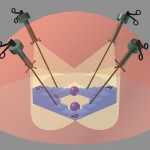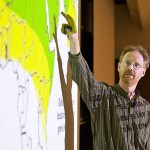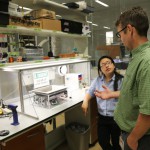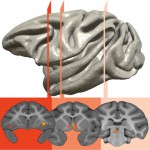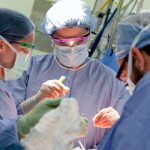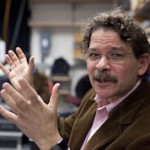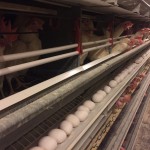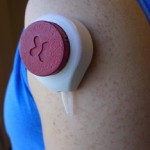Tag Health & medicine
Wireless microcamera clusters broaden laparoscopic imaging
A revolutionary integrated imaging system under development at the University of Wisconsin–Madison could significantly advance laparoscopy, a minimally invasive surgical procedure that, over the last half century, has seen only incremental improvements in imaging.
Report: Bicycling deaths have decreased, but adults remain at elevated risk
Overall rates for U.S. biking deaths decreased 44 percent from 1975 to 2012, according to a new report published Aug. 14 by the Centers for Disease Control and Prevention and led by Jason Vargo, an assistant scientist with UW–Madison's Nelson Institute for Environmental Studies and Global Health Institute.
Veterinary medical researcher honored for lifetime achievement
Ian Duncan, a professor of neurology at the University of Wisconsin–Madison School of Veterinary Medicine and a world leader in the study of myelin disorders of the central nervous system, has received the 2015 Lifetime Excellence in Research Award from the American Veterinary Medical Association (AVMA).
Keeping up that positive feeling: the science of savoring emotions
Savoring a beautiful sunset and the positive emotions associated with it can contribute to improved well-being, according to research. But why and how are some people better than others in keeping the feeling alive?
Two faculty members named Steenbock Professors
University of Wisconsin–Madison faculty members Anthony Ives and Su-Chun Zhang have been named Steenbock Professors.
Dietary intervention primes triple-negative breast cancer for targeted therapy
A diet that starves triple-negative breast cancer cells of an essential nutrient primes the cancer cells to be more easily killed by a targeted antibody treatment, UW Carbone Cancer Center scientists report in a recent publication.
Gift to Morgridge Institute ‘Fab Lab’ to boost medical device innovations
A gift to the Morgridge Institute for Research will help spur medical device innovations coming directly from doctors - the people who know firsthand where the advances are needed.
UW-Madison collaboration promotes well-being in the workplace
Standing in front of a room of business professionals, Jill McDermott shares a number: two quadrillion - the number of megabytes of information broadcast daily. She pauses to let the audience reflect on how this inundation of information contributes to distractions in the workplace that can chip away at a person's well-being and ability to respond to daily challenges, whether it's giving projects the attention they deserve or shaking off a setback or conflict with a colleague.
Protein Suggests a New Strategy to Thwart Infection
The newfound ability of a protein of the intestines and lungs to distinguish between human cells and the cells of bacterial invaders could underpin new strategies to fight infections.
Navigating multiple myeloma with ‘Google Maps’ for the cancer genome
In some ways, studying the genetics of cancer has been like examining the individual tiles on a mosaic, says David C. Schwartz, a professor of genetics and chemistry at the University of Wisconsin–Madison. To make his point, he brings his face close to the table where he sits - his mosaic for the purpose of illustration - and describes the details of each imaginary tile.
Genetic approaches to cancer, neural development lead to honor for UW–Madison scientists
Two University of Wisconsin–Madison researchers - one investigating the genetic basis of cancer growth and the other, the role of genes in neural development and learning - have earned funding and a prestigious honor from the Greater Milwaukee Foundation.
Brief alcohol screening misses mark for people who most need help, study says
As screening for alcohol problems during doctor visits has become more mainstream, a new study published in the journal Addiction finds that the technique does not increase successful referrals to alcohol counseling and treatment.
Longest kidney chain ever completed wraps up at UW Hospital and Clinics
After living with kidney disease for nearly 30 years, 77-year-old Mitzi Neyens of Wausau, WI, thought her luck had finally run out.
Simple sample: Federal grant advances pain-free blood tests from UW startup
A company with deep roots at UW–Madison wants to make blood sampling less painful and more convenient. Tasso Inc. is perfecting a device the size of a pingpong ball that extracts a small sample while held against the skin for two minutes.

